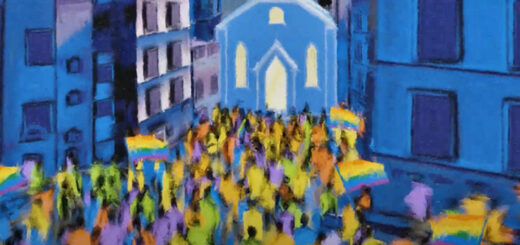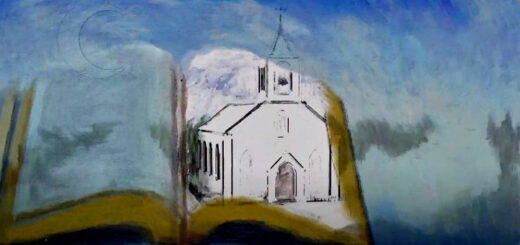2012 Report. Christian LGBT groups and Churches in Italy
 Article by Project Gionata, September 30, 2012, translated from the Italian by Peter L.
Article by Project Gionata, September 30, 2012, translated from the Italian by Peter L.
What dialogue exists between gay Christian groups and Catholic and Protestant churches in Italy? Which Catholic parishes and dioceses and which evangelical churches welcome gay Christian groups? Do bishops propose dialogue or pastoral work “for” and “with” these groups? The 2012 report on “Gay Christian Groups and Dialogue with Churches in Italy” published by “Dialogo” was presented at the Italian Forum of Gay Christians held in the city of Albano Laziale from March 30 to April 1, 2012 with the aim of supplying data on how LGBT Christians are welcomed in Italian churches.
Of 28 gay Christian groups currently active in 19 Italian cities, 23 groups responded to a multiple choice questionnaire. The groups count 494 members, including 407 men (82%), 75 women (15%) and 12 transgender people (3%), with an average of 21 members per group.
The report confirms that the majority of these gay Christian groups are based on informal organization; indeed only three groups (Il Guado in Milan, Nuova Proposta in Rome and La Parola in Vicenza) are associations with a formal statute. Surprisingly, 52% of the groups meet in locations belonging to the Catholic Church, whereas 22% meet in Waldensian church buildings and only 4% in a GLBT association location. Many of the groups (39%) do not organize public activities.
However, nearly half of the groups hosted by Catholic churches (43%) have held prayers vigils for victims of homophobia in the churches. Only five out of 23 groups have never been invited to initiatives held by Christian churches or organizations. The presence of transgender individuals is statistically low, yet this research has collected data on this population for the first time.
Twenty of the 23 groups stated that they are involved in dialogue in various levels. They have been involved with 13 bishops or their representatives, numerous priests, religious men and women, theologians and evangelical pastors. Of the 17 gay Christian groups that answered the question “Have you tried to meet your bishop in the last five years?” 65% (11 groups) answered positively. Regarding group dialogue with other Christian associations, there is evidence of collaboration with various Catholic and Protestant associations.
In general, welcoming gay people and providing pastoral care to them are non existent at the diocesan level, except for the dioceses Parma, Cremona and Turin. However, the report brings to light an overall national picture which is highly varied: in 2 dioceses pastoral care to gay people is currently being discussed (Crema and Leghorn), whereas it is currently being carried out in four Catholic communities (mainly parishes) and in 7 Protestant communities. Regarding the controversial and thorny subject of so-called “reparative therapies” only 3 groups reported initiatives of this type in their dioceses.
Download> Rapporto 2012. I gruppi di cristiani lgbt e le chiese (pdf)






